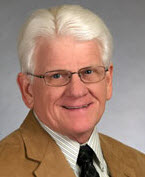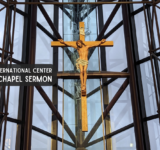1. Christian Bioethics

- Dr. Bob Weise talks about issues related to Christian bioethics. Bioethics is the study of controversial ethics brought about by advances in biology and medicine. Bioethicists are concerned with the ethical questions that arise in the relationships among life sciences, biotechnology, medicine, politics, law, and philosophy.
About Dr. Weise: Dr. Robert W. Weise is professor of practical theology. Eastern Illinois University, Charleston, Illinois (B.S. in Ed. 1967); University of Illinois, Urbana, Illinois (M.S. 1970, Ph.D. 1973); Concordia Seminary, St. Louis, Missouri (M.Div. 1982); instructor, Kansas State University, Manhattan, Kansas (1972-73); research associate, Wayne State University, Detroit, Michigan (1973-74); assistant professor (1974-78); pastor, Zion, Bunker Hill, Illinois (1982-85); senior pastor, Our Savior’s, Springfield, Illinois (1985-92); associate professor, Concordia Seminary, St. Louis, Missouri (1992-2002); professor since 2002; The Lutheran Foundation of St. Louis Chair in Pastoral Ministry and the Life Sciences since 1992. Find Dr. Weise’s bio here.
2. Daily Lectionary
Rev. Mark Braden from Zion Evangelical Lutheran Church in Detroit, Michigan, studies 1 Corinthians 8:1-13.
Audio Player3. Morning Prayer Sermonette
Today’s sermonette is by Rev. Mark Braden from Zion Evangelical Lutheran Church in Detroit, Michigan.
Audio Player
1 Corinthians 8:1-13
Food Offered to Idols
8 Now concerning[a] food offered to idols: we know that “all of us possess knowledge.” This “knowledge” puffs up, but love builds up. 2 If anyone imagines that he knows something, he does not yet know as he ought to know. 3 But if anyone loves God, he is known by God.[b]
4 Therefore, as to the eating of food offered to idols, we know that “an idol has no real existence,” and that “there is no God but one.” 5 For although there may be so-called gods in heaven or on earth—as indeed there are many “gods” and many “lords”— 6 yet for us there is one God, the Father, from whom are all things and for whom we exist, and one Lord, Jesus Christ, through whom are all things and through whom we exist.
7 However, not all possess this knowledge. But some, through former association with idols, eat food as really offered to an idol, and their conscience, being weak, is defiled. 8 Food will not commend us to God. We are no worse off if we do not eat, and no better off if we do. 9 But take care that this right of yours does not somehow become a stumbling block to the weak. 10 For if anyone sees you who have knowledge eating[c] in an idol’s temple, will he not be encouraged,[d] if his conscience is weak, to eat food offered to idols? 11 And so by your knowledge this weak person is destroyed, the brother for whom Christ died. 12 Thus, sinning against your brothers[e] and wounding their conscience when it is weak, you sin against Christ. 13 Therefore, if food makes my brother stumble, I will never eat meat, lest I make my brother stumble.
Footnotes:
- 1 Corinthians 8:1 The expression Now concerning introduces a reply to a question in the Corinthians’ letter; see 7:1
- 1 Corinthians 8:3 Greek him
- 1 Corinthians 8:10 Greek reclining at table
- 1 Corinthians 8:10 Or fortified; Greek built up
- 1 Corinthians 8:12 Or brothers and sisters
English Standard Version (ESV)The Holy Bible, English Standard Version Copyright © 2001 by Crossway Bibles, a publishing ministry of Good News Publishers.






